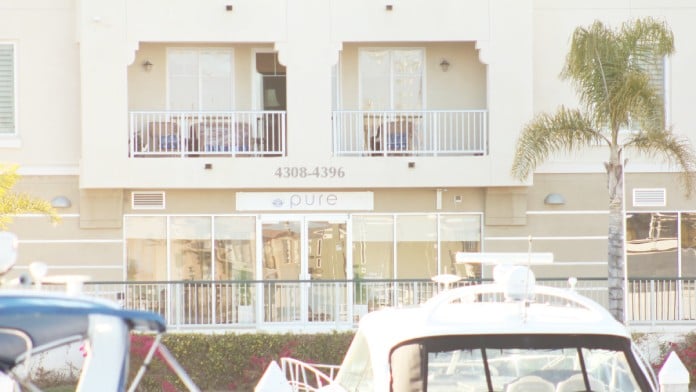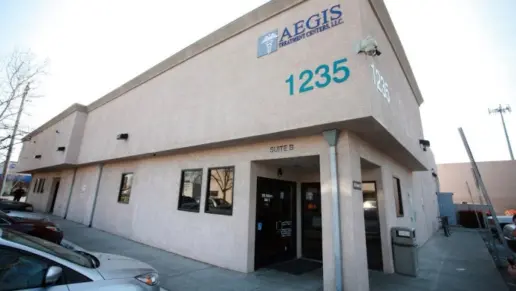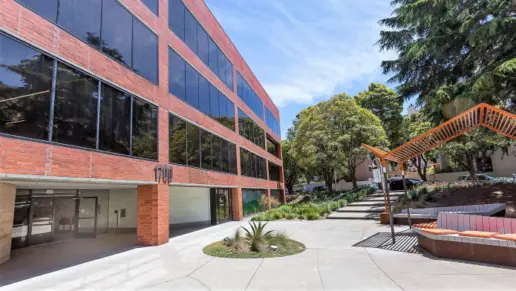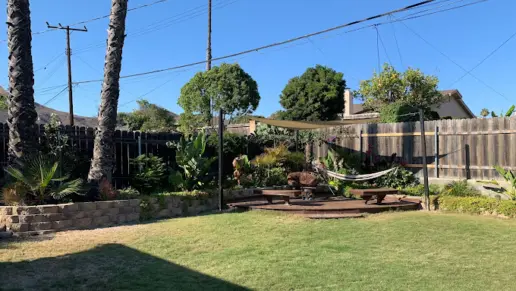About Pure Recovery CA Treatment Center
Situated in the enchanting coastal city of Oxnard, California, Pure Recovery provides residential mental health and substance abuse programs that are uniquely tailored to give individuals a chance toward long-term recovery. It uses science-based treatments and combines them with a wellness-centric protocol to provide an all-encompassing way of treating the mind, body, and spirit.
An emphasis on brain health as an integral part of recovery sets Pure Recovery apart. They offer neurological rehabilitation and then there is the mental health piece coupled with addiction treatment. By integrating the latest in neuroscience technology, they hope to solve substance use and mental health disorders and promote better cognitive function that benefits brain health. The brain-based treatment promotes emotional resilience and cognitive clarity during recovery, which is especially useful for people with a history of trauma, anxiety, depression or other co-occurring disorders.
On the addiction treatment side, Pure Recovery provides a source of tough love throughout an extensive and compassionate continuum of care. The mission of their programs is to heal addiction in the physical, emotional and neurological bodies.
In addition to detox or counseling, they provide substance abuse treatment programs using certain therapies such as cognitive behavioral therapy (CBD) and dialectical behavioral therapy (DBT). What sets them apart are activities to promote well-being like yoga, meditation and workout sessions. Holistic therapies like these have been substantiated in scientific circles to lower stress levels and elevate mood as recovery progresses.
One of the special features of this center is its luxury accommodations that provide individuals with a private room, gourmet meals and a peaceful resort-like environment. The serene setting of Oxnard, its coastal breezes and landscape views present an ideal escape that allows their guests to get away from the hustle and bustle of city life to recover in order to heal their mind and body.
Latest Reviews
Rehab Score
Gallery

Location
Accepted Insurance
Other Forms of Payment
Private insurance refers to any kind of healthcare coverage that isn't from the state or federal government. This includes individual and family plans offered by an employer or purchased from the Insurance Marketplace. Every plan will have different requirements and out of pocket costs so be sure to get the full details before you start treatment.
Self-pay involves paying for treatment out of your own pocket. You can use savings or credit, get a personal loan, or receive help from family and friends to fund your treatment. If you don't have insurance or your insurance plan doesn't cover a specific program, self-pay can help ensure you still get the care you need.
Sliding scale payments are based on a client's income and family size. The goal is to make treatment affordable to everyone. By taking these factors into account, addiction recovery care providers help ensure that your treatment does not become a financial burden to you or your family, eliminating one barrier to care.
Military members, veterans, and eligible dependents have access to specific insurance programs that help them get the care they need. TRICARE and VA insurance can help you access low cost or no cost addiction and mental health treatment. Programs that accept military insurance often have targeted treatment focused on the unique challenges military members, veterans, and their families face.
Addiction Treatments
Levels of Care
Treatments
Substance rehabs focus on helping individuals recover from substance abuse, including alcohol and drug addiction (both illegal and prescription drugs). They often include the opportunity to engage in both individual as well as group therapy.
Programs


Clinical Services
Cognitive behavioral therapy in California is a method that therapists often use for the effective treatment of substance use disorders. It is based on the principle that substance abuse stems from unhelpful ways of thinking and patterns of behavior, which can be changed by helping the individual learn better ways of coping.
While participating in dialectical behavior therapy in California, you'll focus on four key areas of skill development: mindfulness, interpersonal effectiveness, emotion regulation, and distress tolerance. Treatment includes weekly individual and group sessions.
Group therapy is any therapeutic work that happens in a group (not one-on-one). There are a number of different group therapy modalities, including support groups, experiential therapy, psycho-education, and more. Group therapy involves treatment as well as processing interaction between group members.
In individual therapy, a patient meets one-on-one with a trained psychologist or counselor. Therapy is a pivotal part of effective substance abuse treatment, as it often covers root causes of addiction, including challenges faced by the patient in their social, family, and work/school life.
Trauma therapy is a structured approach used by therapists to help you heal from a past traumatic event. Your therapist works with you to identify the traumatic memory and process the information so you experience emotional healing and a sense of safety and stability.
The goal of couples therapy in California is to strengthen the couple's relationship. The therapist may take one or more approaches to counseling which may include the Gottman method, emotionally focused therapy, behavioral therapy, and psychodynamic couple's therapy.
Family therapy offers a platform for members to have an open dialogue about the challenges that addiction has placed on the family unit. Through guided sessions, therapists can help families develop healthy communication skills and address unresolved issues. By working together toward a common goal, they help to support their loved one's sobriety.
The goal of creative arts therapy in California is to encourage growth and transformation. It can be used in individual and group settings with both children and adults. Options include movement, music, and painting.
Amenities
-
Gym
-
Yoga Studio
-
Residential Setting
-
Private Rooms
-
Mountain Views
-
Gardens
Accreditations

The Commission on Accreditation of Rehabilitation Facilities (CARF) is a non-profit organization that specifically accredits rehab organizations. Founded in 1966, CARF's, mission is to help service providers like rehab facilities maintain high standards of care.
CARF Accreditation: Yes

LegitScript has reviewed Pure Recovery CA Treatment Center as part of their certification program, and has determined that it meets the LegitScript standards for legality, safety and transparency.
LegitScript verified in

State Licenses are permits issued by government agencies that allow rehab organizations to conduct business legally within a certain geographical area. Typically, the kind of program a rehab facility offers, along with its physical location, determines which licenses are required to operate legally.
State License: California

The Joint Commission, formerly known as JCAHO, is a nonprofit organization that accredits rehab organizations and programs. Founded in 1951, the Joint Commision's mission is to improve the quality of patient care and demonstrating the quality of patient care.
Joint Commission Accreditation: Yes
Contact Information
4300 Tradewinds Dr
Oxnard, CA 93035









